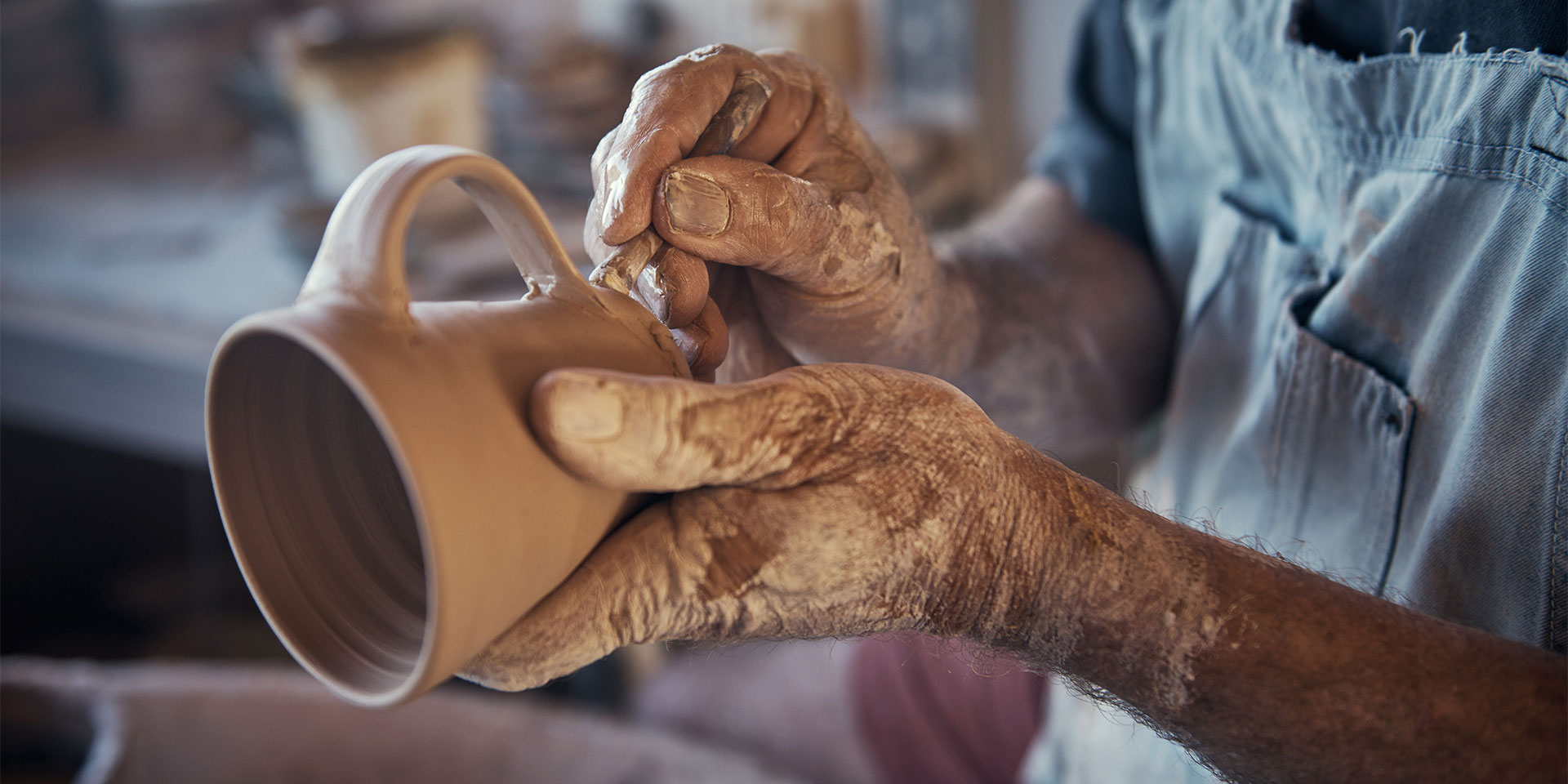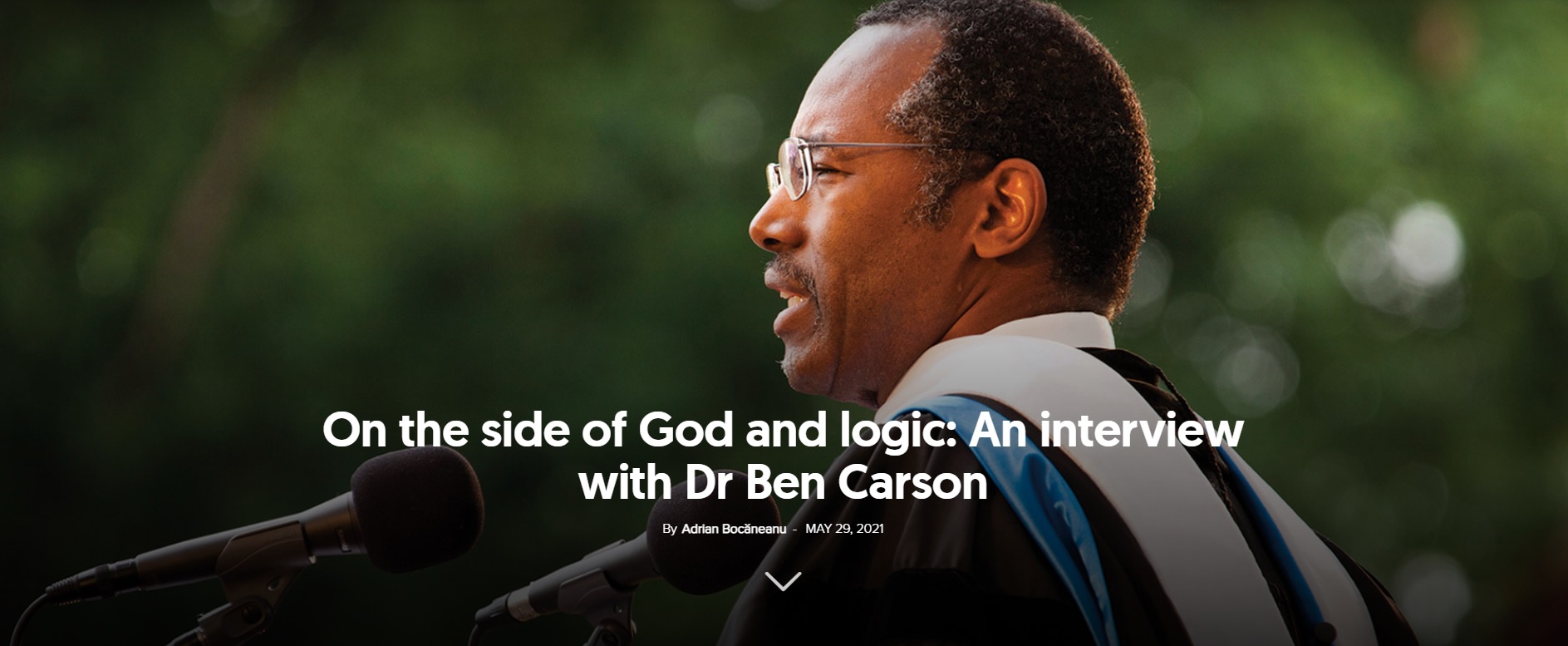Dr Carlton Byrd is the director and main speaker of Breath of Life, a television broadcast dedicated to the Black population in the US, and the pastor of Oakwood University Church.
Raised in a pastor’s home, in an environment which he describes as marked by prayer, Dr Byrd confessed that he thanks God for this. “I did not wander here and there. I followed the straight path. I knew what I wanted. I had challenges throughout my life, but I knew God wanted me to be a pastor.”
I wanted to present to the readers of Signs of the Times this dynamic and successful man, who has at least two moving stories drawn from his life experiences. The first one is related to his own experience, showing that he has not been exempted from one of life’s worst trials. The second one is related to the successful model of Christian ministry. Through it, the church he led (before he became a chaplain in Oakland) managed to transform the life of the community it is part of.
Dr Byrd, please, tell us first about the most significant day of your life.
I was a Pastor in Nashville, Tennessee. Together with my wife and my oldest daughter, we were on our way to a church in Tuscaloosa, Alabama, on a Saturday morning, to preach there for a special Sabbath. When we were only 30 kilometres away from our destination we had a terrible road accident. Our car rolled over several times. It eventually stopped in the space between the two traffic directions. I was taken to the hospital together with my wife by an ambulance and my daughter by another.
Our girl was taken to the ICU and was kept alive artificially. I will never forget that day. It was the 25th of September 1999. My wife and I were feeling better. Out of the three of us, I was feeling the best. My wife was in the ICU in a hospital, my daughter in the ICU, in another hospital. I went to the other hospital and found out that our daughter was being kept alive artificially. We prayed like never before. My wife asked to be transferred to the hospital where our daughter was. We were there, our parents, family, the pastors that knew us were there. They all came to pray for our daughter.
On the 27th of September, the health condition of our daughter had not changed. They told us that if her condition didn’t improve by the 28th, at 12 o’clock she would be disconnected. The day came when everything was supposed to end. At 11:50 I went into her room and asked the doctor if I could hold her. I knew our girl would live. I knew, because I had great faith in God. I was convinced she would cough, or cry or that she would do something when she was disconnected.
However, this story has no happy ending because my daughter died in my arms and I was crushed.
I thought, “Lord, why did You allow this to happen? You told me to go this way. I could have made other decisions, but now I am 100% on Your side. Why did You allow this in my life?” God has blessed me and my wife with two other girls. One is 12 and the other 10 years old. The daughter that we lost would have been 14. We praise God for the two daughters we have, but they do not replace the one that died. We thank God because we did not turn into mean people, that we became better, but we want to be even better. Through the death of my girl God has enabled me to save the lives of several other people. We wait for Jesus to return. Then we’ll be able to tell our daughter that, through her sacrifice, many other people came to know Jesus Christ.
God made His message very clear to me: he spared my life because a) I was not ready to die then, b) I still had work to do for Him, or c) both of the above. Retrospectively, I can say that I was not ready to die and that I still had a lot of work to do. Later, God blessed me with numerous missionary projects and thousands of people who came to know God.
Did this family tragedy and the conviction that God was close to you enable you to better understand and help those in trouble?
Today I have a faith testimony that strengthens others. What God did for me, He can also do for you. My most painful experience was this car accident. Someone else might struggle with a bad habit, a difficult marriage, financial problems, or an illness. Regardless of the problem, I am here today. God will help you move on. There is no problem God cannot solve. What He can do for others, He can do for you too.
You are an Afro-American pastor. I would like to go back in time and ask you to talk to us about the genesis of Christianity among Afro-Americans.
Africans were kidnapped from their birth places and brought to these territories. Then they were exploited as slaves. Their initial religion was not Christianity, and, when they were brought here they came to embrace the faith of the masters who had committed such terrible acts of injustice.
Wasn’t it difficult for these slaves, that had been beaten and humiliated, trampled, to take on their masters’ faith?
It’s interesting how that happened. I believe it could even happen today if that had to happen. Jesus Christ loves everyone. If you are a Christian you must love everyone, not only the ones who resemble you. Let’s be clear. I am black. Look at me. I understand this. But I also understand the fact that Christ is number one for me. He loves me. He loves me so much that He came to die for me, so that I can live for Him. A doctrine of black domination, if we can talk about such a thing, would be as wrong as the domination of white people. We are all equal at the foot of the cross. I am proud of my legacy, my culture, but I am also a Christian and this gives me a better perspective.
How did the experience of slavery influence the way in which African people understood God or the salvation offered by Him?
Many Africans were brought by slave ships. They were crammed and forced to come via the East Coast and many of them were sold. In this way, families were torn apart, children were separated from each other and from their parents. It was horrible. Many of these black people became the slave owners’ priority. Most of them couldn’t read or write. They worked in the field or were servants inside the house. Many of them sang. This is how the musical genre called Negro spirituals came to be. People sang these songs while they were working in the fields as slaves: “Ride on, King Jesus”, “Troubles of this World”, “Swing Low, Sweet Chariot” (an allusion to Elijah’s chariot of fire). These songs reflected the hope of black people that, one day, they will no longer be slaves, that one day, they will no longer do what they were doing then. They hoped to be free, and should they have to remain slaves, they would die and go to the Lord and they would still be free. The Negro spiritual songs were born out of black people’s experience.
Millions and millions of people were brought here by force. Families have been torn apart. Can you still trace back your African roots? Were you able to identify the area, nation, tribe or African family you come from?
All has been erased. I tried to find my relatives, my origins, but it’s very hard. A lot of black peoples’ legacy consists of orally transmitted traditions. Many of them were not written because many people could not read or write. Unfortunately they were illiterate. Because black people had a tradition that was transmitted orally, it’s hard to trace back the roots and origins because, unfortunately, nothing has been written or recorded.
I can say I have traced back my roots, but I am only talking about a few generations back. My starting point, however, I was not able to identify. I could not go back to the very moment when my forefathers were brought with the slaves ships. It’s extremely difficult.
What a pity! Talking about other characteristics of the religious Afro-American culture, do you believe African-Americans have the tendency to stick more together, to do things together, to frequently connect to each other, to help one another?
In society, each culture has its needs. The need to be together is present in each culture, but in black culture the connection between people is a very strong one. The community is very important. In the 1960s, in the period of the civil rights movement, the black church was very strong. Even today, the church has this power, in all the beliefs that exist here. We have very strong connections among ourselves, regardless of the denomination. We have common points and disagreements, different cultural norms, but we have very strong bonds. We see this and know this to be true.
We are a church that belongs to a community, and I am responsible for this community, not just for my church, but for the entire civic community. This is why my church is very active in society.
For instance, across the street from the church I led before coming to Oakland, there is also the old headquarters of the church I bought back, the one we had to sell. I turned this building into a community centre that includes a beauty parlour, a barbershop, and a vegetarian shop. We have a distribution centre for the poor. We offer food and clothes weekly to all those in need in the city, not only those in the church. We’ve also set up a gym to improve health, a room were therapeutic massages are offered, so the whole neighbourhood can benefit from these services. The centre also has two apartment buildings, where shelter is offered to abused women and their children. These services are not only offered to the members of the church, but to everyone in town. The church also has a nursery school and an elementary school were 500 children go. Here, not all pupils come from the Adventist church because this was our attempt to make ourselves useful to our neighbourhood.
In 2011 we received money from the American government: 5.2 million dollars to build a building with 50 apartments for the elderly. These apartments are not only destined for the members of the church but also for all the people in town. We should live out Christ’s life, not just talk to people about Christ.
This is what Christ told us, to proclaim good news to the poor, to set the oppressed free, to heal the broken-hearted. Times are hard financially, but God gave us everything we needed. I believe this characterizes our church, the fact that we treat people in a holistic way.
Pastor, are you already in heaven?!
Oh, how I wish! This is my hope. Especially in the six years I’ve been in Atlanta, in this church, we grew in a phenomenal way. The mission came first. Why did we do what we did? Because we want to see people accepting Jesus Christ.
In the end, I would like you to say a few words about the television broadcast “Breath of Life”. When was it established? What is its purpose, vision, and mission?
The TV broadcast was born in the beginning of the 70s and the director and main speaker back then was Pastor C.S. Brooks.
I had the privilege to interview him a few months ago. A godly man, a very good preacher.
The TV broadcast “Breath of Life” is traditionally dedicated to the urban population. I am the third director since its foundation and the main speaker. I thank God for this opportunity. The Lord has been good to me!
At a national level, our programs are broadcast by four national cable companies: Discovery Channel, World Network, 3ABN and Hope Channel. I am delighted to tell you that NBC broadcasted the Christmas concert from our church, in Atlanta, on Christmas Eve of 2011. We are happy because the message of our TV broadcast is being heard louder and louder and thus the interest in faith and in our church is growing.
Dr Byrd, it was a pleasure talking to you. Thank you for sharing with us a bit of your personal experience.















